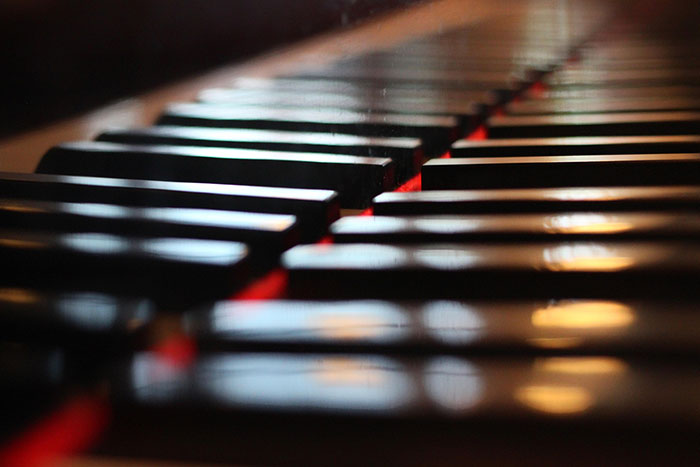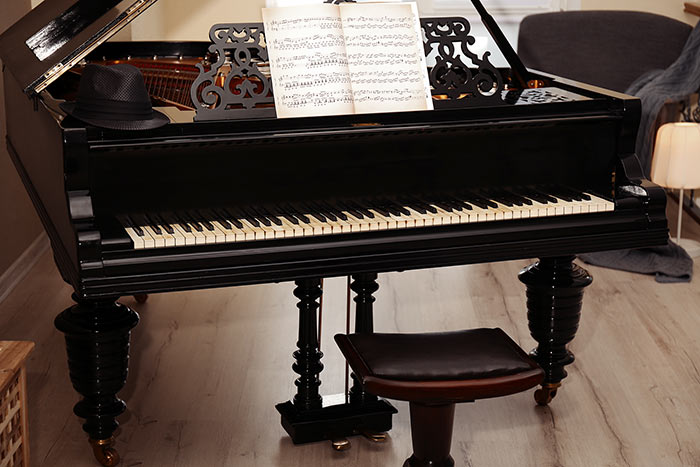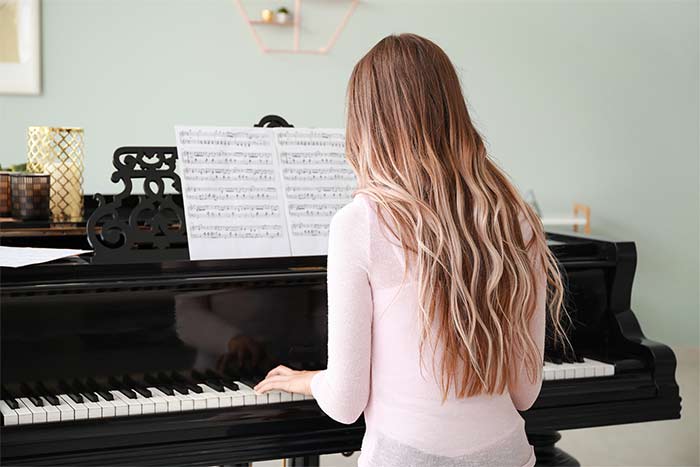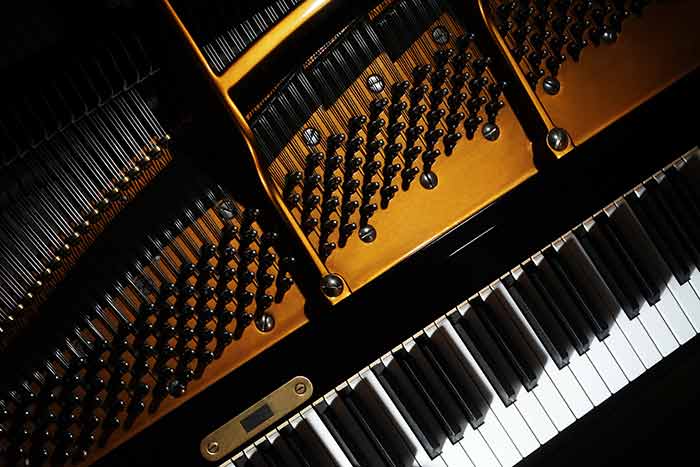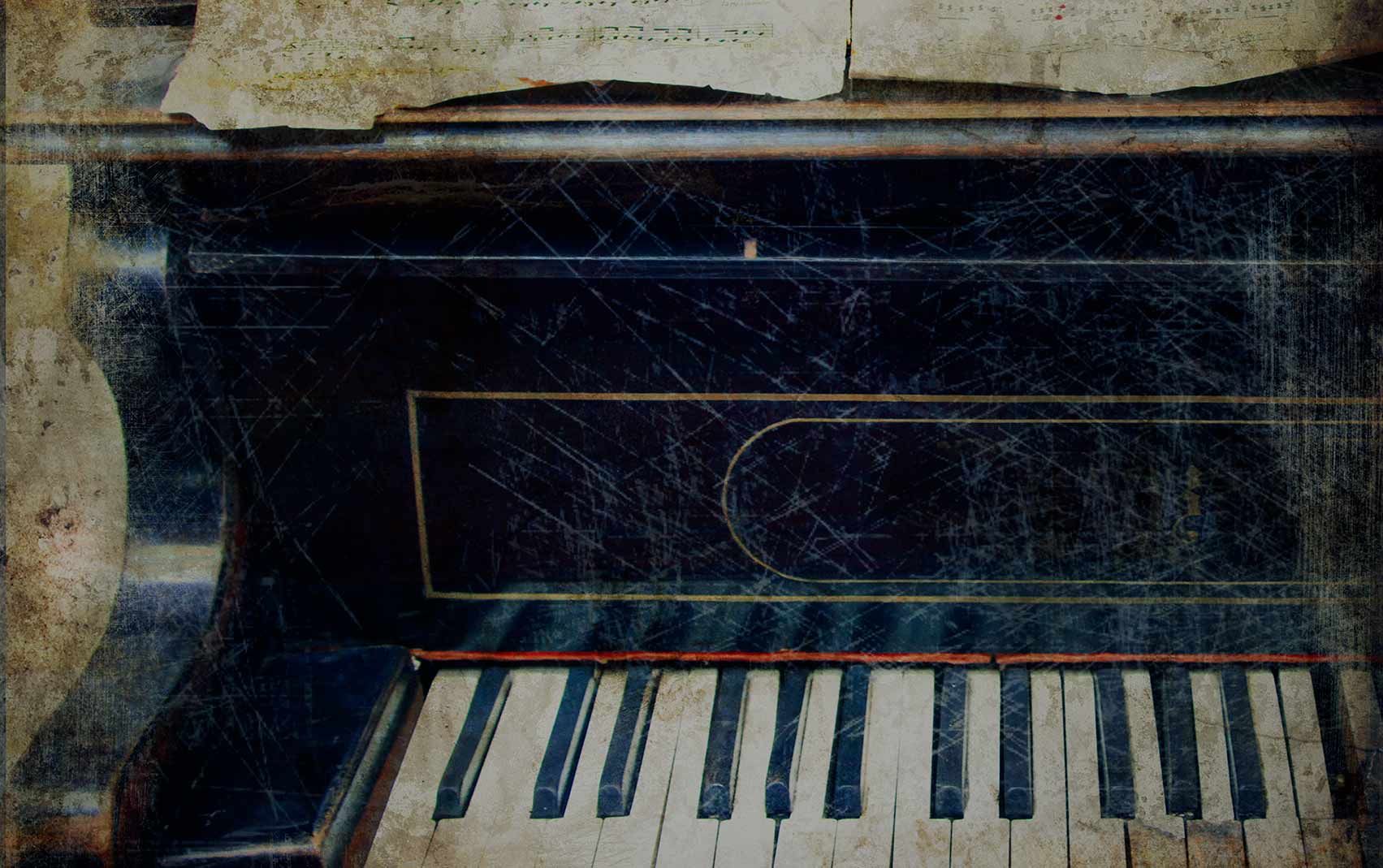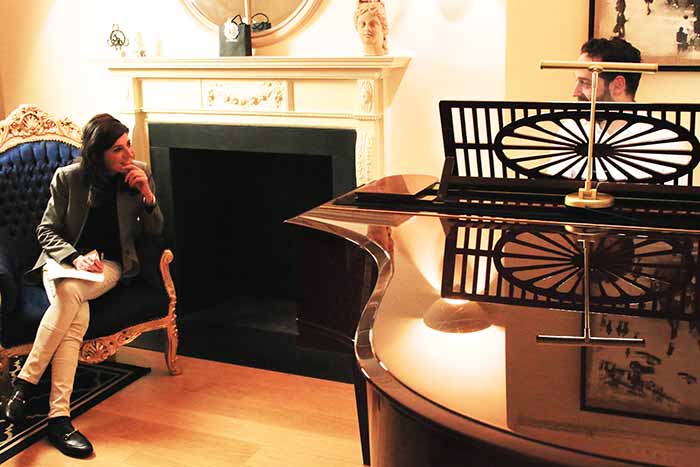About Xinyue
Xinyue, a renowned classical piano teacher at London Piano Institute, brings over a decade of experience, remarkable skills, and awards to inspire students.
Stefan Joubert: How do you deal with technical difficulties?
Xinyue: I employ several strategies to overcome challenges and improve my skills:
1: Isolate the Problem: When facing a technical issue in a specific passage or technique, I isolate that section and practice it separately from the rest of the piece. Focusing on the problem area allows me to address it more effectively.
2: Practice Rhythmic Variations: To enhance my rhythmic control, I experiment with different rhythmic patterns while practicing. This helps me tackle complex rhythms more confidently in the actual piece.
3: Visualisation: When not at the piano, I mentally visualise the passages or techniques I’m working on. This mental practice can reinforce muscle memory and improve overall performance.
Stefan Joubert: What is the most valuable tip you would give someone who is about to give his or her first public performance?
Xinyue: The most valuable tip I would give is to “embrace nerves and focus on the music.”
Here’s what I mean:
1. Embrace Nerves: Feeling nervous before a performance is entirely normal and even experienced musicians still get nervous. Instead of trying to suppress these feelings, acknowledge and embrace them. Nervousness can actually be a positive force, adding an edge of excitement and energy to your performance. Remember, the audience is rooting for you, and they want you to succeed.
2. Practice Performance: As part of your preparation, practice performing in front of others. Play for family members, friends, or in front of a small audience. This will help you get used to the feeling of performing under some pressure and simulate the performance environment.
3. Forgive Imperfections: Understand that mistakes happen, even to the best performers. If you make a small slip, don’t dwell on it. Keep going and maintain your focus on the music. Most audience members won’t notice minor errors, and they are more interested in the overall performance. By embracing nerves and keeping your focus on the music, you can give a memorable and enjoyable performance, leaving a positive impression on both yourself and your audience.
Good luck!
Stefan Joubert: When you listen to someone else’s performance, what matters the most to you?
Xinyue: When I listen to someone else’s performance, several aspects matter the most to me:
1: Tone and Touch: The pianist’s tone production and touch on the keys are essential. A rich, warm, and varied tone, coupled with sensitivity to the music’s dynamics, can bring out the full potential of the instrument.
2: Phrasing and Articulation: I listen for how the pianist shapes phrases and articulates individual notes. Skilful phrasing can add nuance and elegance to the performance, making the music more engaging and expressive.
3: Balance and Pedalling: The pianist’s control of balance between melody and accompaniment and their judicious use of the pedal are crucial. Proper pedalling can create a sense of depth and resonance in the music. Overall, I value performances that not only showcase technical prowess but also convey a genuine passion for the music and a strong desire to communicate and share the beauty of the repertoire with the listeners.
Stefan Joubert: What is the most common mistake you see among beginners?
Xinyue: As a piano teacher, the most common mistake I see among beginners is improper hand and finger positioning.
Here’s why it’s a significant issue:
1: Tension and Inefficiency: Beginners often tense up their hands and fingers while playing, which can lead to discomfort and inefficiency in their playing technique. This tension hinders fluidity and can cause fatigue during practice sessions.
2: Limited Range of Motion: When beginners don’t position their hands properly, their fingers might not have the necessary range of motion to navigate the keyboard effectively. This limitation can hinder their ability to play more complex pieces as they progress.
3: Difficulty with Hand Independence: Hand and finger positioning are critical for developing hand independence – the ability to play different rhythms and melodies with each hand simultaneously. Without a solid foundation in hand positioning, this skill becomes harder to achieve. As a piano teacher, I emphasise the importance of correct hand and finger positioning from the very beginning. I guide my students on how to position their hands comfortably and relaxedly, with rounded fingers and proper arches. This foundational aspect helps them develop a strong technical base and sets them up for success as they progress in their piano journey. Regular reminders and exercises to reinforce proper hand positioning are crucial in overcoming this common mistake among beginners.
Stefan Joubert: What are your favourite pianos and why?
Xinyue: My favourite piano definitely would be Steinway & Sons because Steinway pianos are renowned for their exceptional craftsmanship and rich, expressive sound. They have a warm and resonant tone that is highly versatile, making them suitable for a wide range of musical styles and genres. Playing on a Steinway gives me a sense of connection to a long tradition of great pianists and musicians who have embraced this iconic instrument.
A short tip: Embrace mistakes as stepping stones to greatness. Each wrong note is an opportunity to learn, grow, and refine your artistry.



